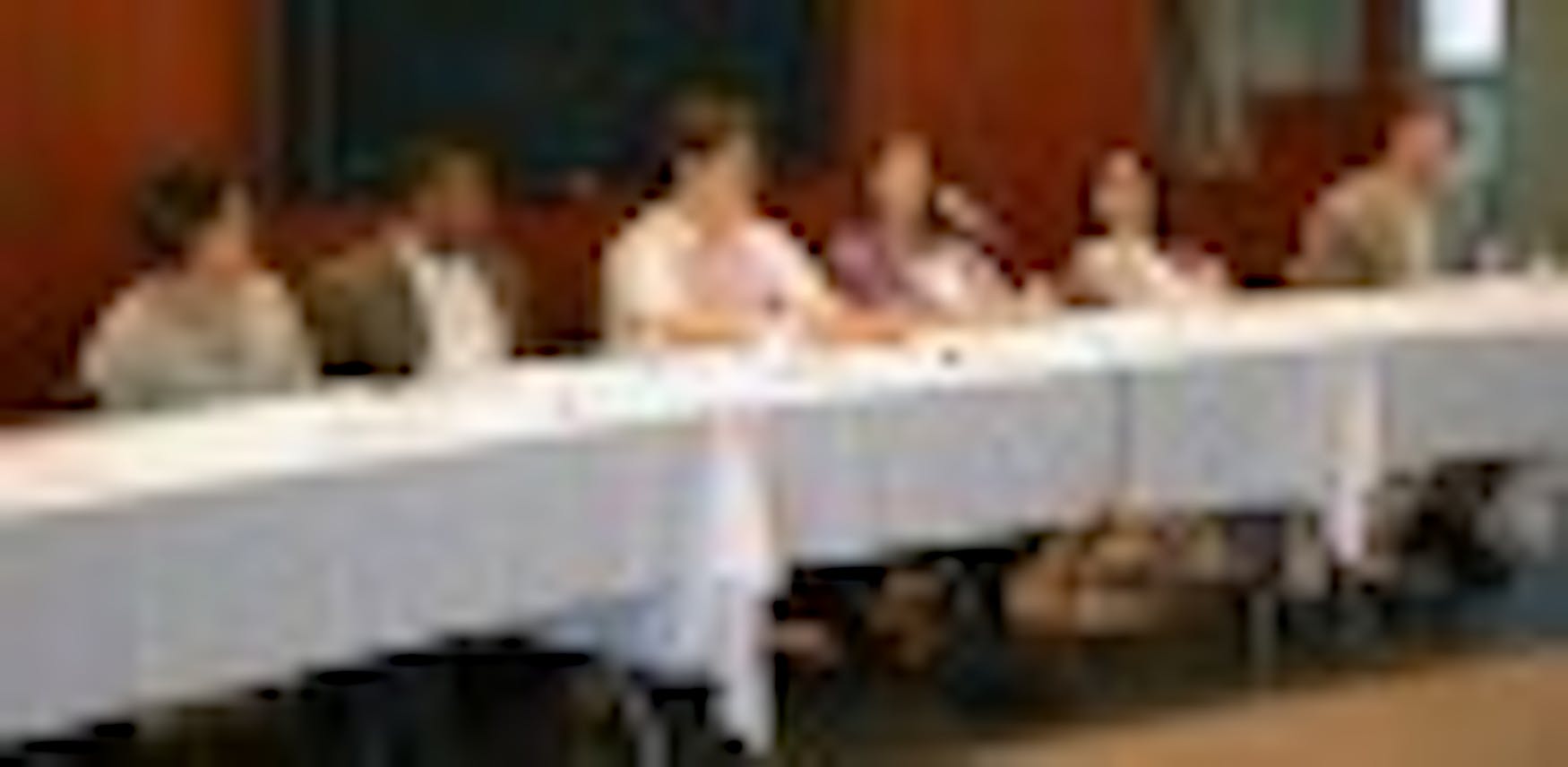SACNAS holds second-annual summit
The Brandeis chapter of the Society for the Advancement of Chicanos and Native Americans in Science held its second-annual diversity summit on Saturday, at which professors, Ph.D. students, graduate students and undergraduates gathered to discuss the role of minority students in the sciences. The symposium aimed "to bring together professionals and faculty alike from all different scientific fields and branches in order to provide undergraduates and graduate students alike, as well as local high school students, with the opportunity to network and interact with scientists within the New England area," according to the event page on myBrandeis.
About 50 people registered for the event on Saturday from institutions such as Boston University, Harvard University and Brandeis, according to Brandeis SACNAS Co-president Kerwin Vega '11.
The Brandeis chapter of SACNAS is a chartered club that was founded in fall 2009, according to Vega. As a chartered club, Brandeis SACNAS used funds from the Finance Board to pay for the symposium.
"Currently Brandeis SACNAS has about 13 active members who attend meetings once every 2 weeks where we have speakers in the sciences come speak about job opportunities and about what they do in their career and how they got to where they are today," wrote Vega in an e-mail to the Justice.
The mission of SACNAS is "to provide our members with every opportunity possible to gain the experience and knowledge necessary to become a great candidate for summer internships, jobs and, in the long run, candidates for the best Ph.D. and/or M.D. programs in the country," added Vega.
Professor of Cell Biology Daniel Colón-Ramos from Yale University was the keynote speaker at the symposium.
Colón-Ramos, who was born in Puerto Rico, spoke about how he became a scientist and explained that he did not experience a "linear path to becoming a scientist."
In fact, Colón-Ramos became interested in science at an early age, and his trajectory was a "process of exploration," he said.
Colón-Ramos stressed the importance of finding "the right mentor at the right time." For example, he worked in the lab of a fellow Puerto Rican scientist, Prof. Mariano Garcia-Blanco from Duke University.
Prior to that lab experience, Colón-Ramos said that he had not always had positive experiences in lab environments.
A negative experience in a lab should not deter anyone from pursuing a field in the sciences, and it is important to find the right lab and the appropriate adviser for one's own working style and fields of interest, he said.
Colón-Ramos added that students need to be proactive when seeking advisers, especially at elite institutions such as Brandeis.
In order to be a successful scientist, "you have to be comfortable not knowing," said Colón-Ramos. He continued, "Science is about not knowing and [about] finding the answer."
Colón-Ramos also tailored his message toward SACNAS and said that minorities in science, such as Chicanos and Native Americans, should be empowered by their education to advocate for their communities.
Prof. James Morris (BIOL) also spoke at the symposium and told the audience about his winding path to becoming an M.D. and Ph.D.
Morris agreed with Colón-Ramos that it is important to find a good mentor at the appropriate time.
For example, Morris' first mentor was his high school biology teacher because she inspired him to spend time thinking and observing the world.
Additionally, Morris said that it is important to try new things and pursue one's passions in order to be successful in the field of science.
The symposium also featured a career panel discussion and a networking lunch.
"The intimacy and connections achieved through the networking lunch, and the [genuine] enthusiasm of those in attendance were also aspects that are not always seen in science conferences, and any questions and concerns anyone had about their individualpath in science [were met] with seasoned answers," said SACNAS Co-president Omoefe Ogbeide '12 in an interview with the Justice.




Please note All comments are eligible for publication in The Justice.